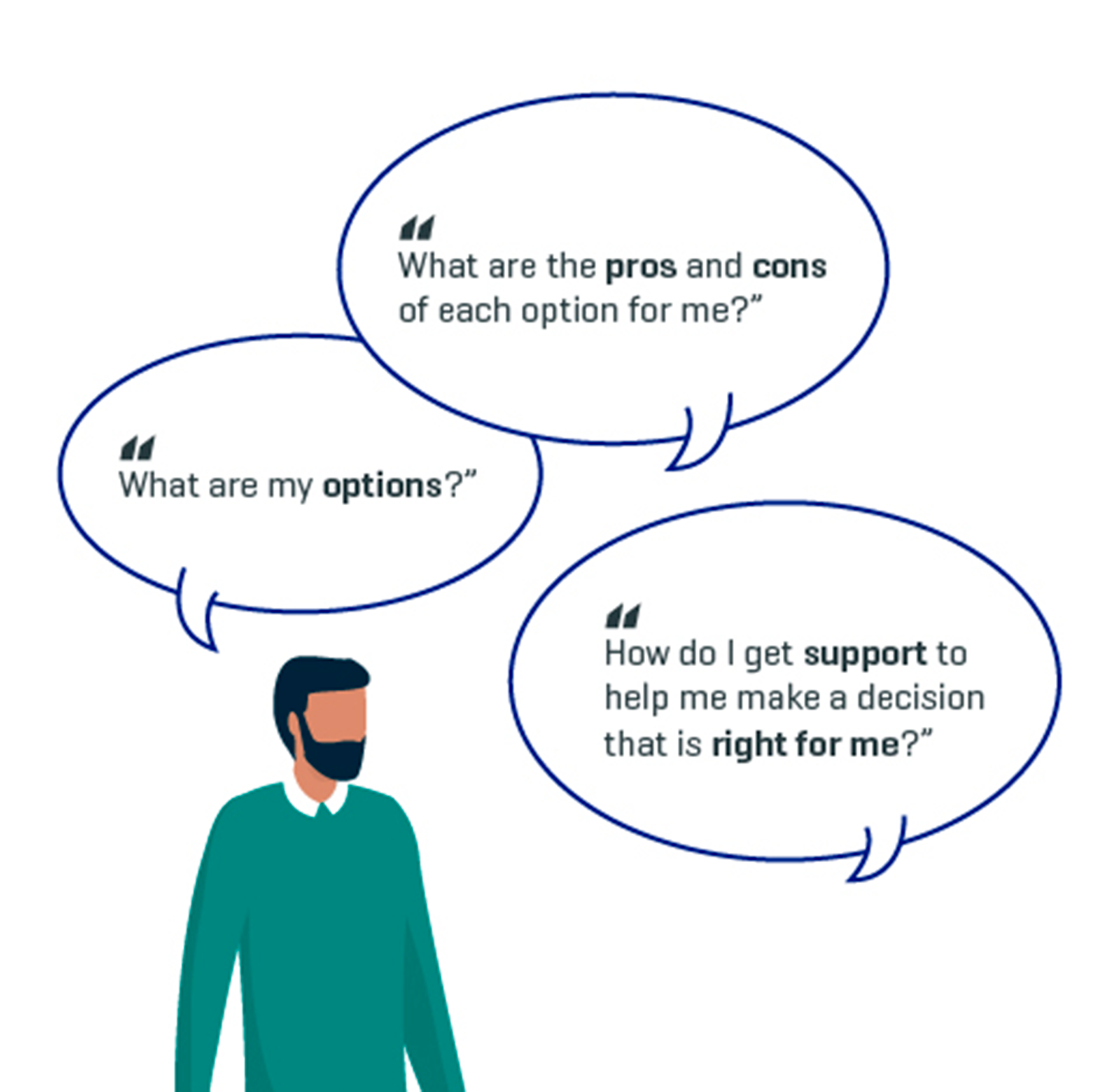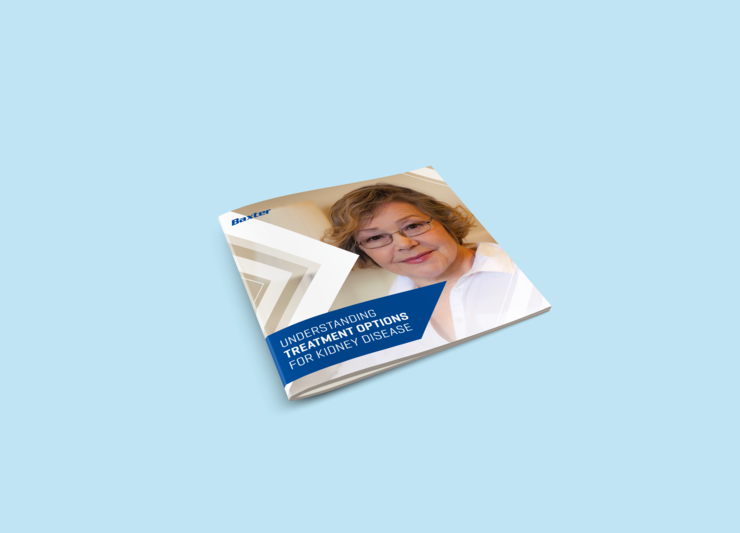Next Steps
Getting the most out of the time you have with your healthcare team sometimes means asking the right questions.


Getting the Right Information at the Right Time
The information on this website is intended to supplement what you have discussed with your healthcare team. Combining this information with what you have already been told may help you make important treatment decisions.
- to decide whether or not you want to have treatment
- to choose between different types of treatment
- to decide whether you want to continue with the same treatment
What you choose to do should depend on what is important to you.

3 Good Questions to Ask
When it comes to you having to make decisions about your healthcare, in collaboration with your healthcare team, it is a good idea to ask these 3 questions:
1. What are my options?
2. What are the pros and cons of each option for me?
3. How do I get support to help me make a decision that is right for me?
These 3 questions are based on
Shepherd HL, et al. Three questions that patients can ask to improve the quality of information physicians give about treatment options: A cross-over trial. Patient Education and Counselling, 2011;84: 379-85
Kidney function is essential for life. When your kidneys fail, you will need lifelong treatment to replace your kidney function. Not every patient can have a kidney transplant. For many of you, dialysis will be the only available therapy. Home based dialysis treatments are effective and are designed to be flexible to suit your lifestyle and individual needs. For you to make the best decisions about your care, you need information about your dialysis choices at the right time and in a form that you can understand. This will allow you to discuss and plan your treatment with your clinical team.
By providing patients with resources to access information about dialysis, how and when they chose, they are better empowered to make informed decisions about their treatments with the support of their clinicians.Professor Catherine Wall, Consultant Nephrologist, Tallaght University Hospital
Patients with CKD who progress to requiring Renal Replacement therapy in their future face life altering decisions. They need support in order to help them choose a form of therapy that will have best outcomes, aid quality of life and fit their needs. Engagement with patient’s leads to better understanding therefore they are more informed and empowered to choose a therapy appropriate to them. Utilising resource’s that will influence decision making such as web based information, face to face patient education session including views of the lived experience and support systems strengthen this process
Chronic Kidney Disease Team, UL Hospitals Group, University Hospital Limerick

Irish Kidney Association
For renal healthcare to be successful it needs to have patients at the centre, and education allows patients to play a meaningful role in their own healthcare. Patient engagement has been shown to lead to improved health outcomes and quality of life. Clear, high quality sources of information and advice will help ensure that patients are making informed decisions about their own healthcare


